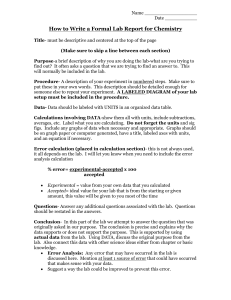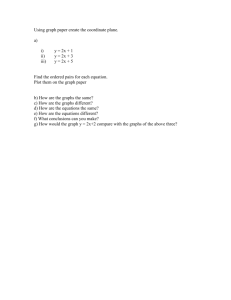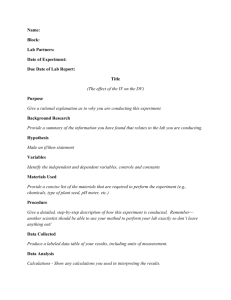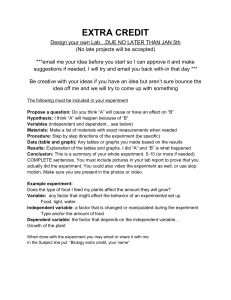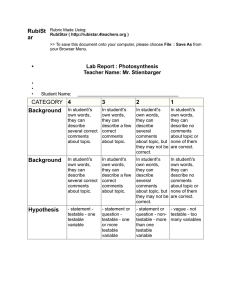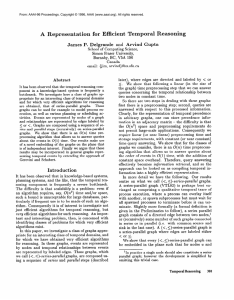Ms. Zinner's Homework Formatting Guidelines
advertisement
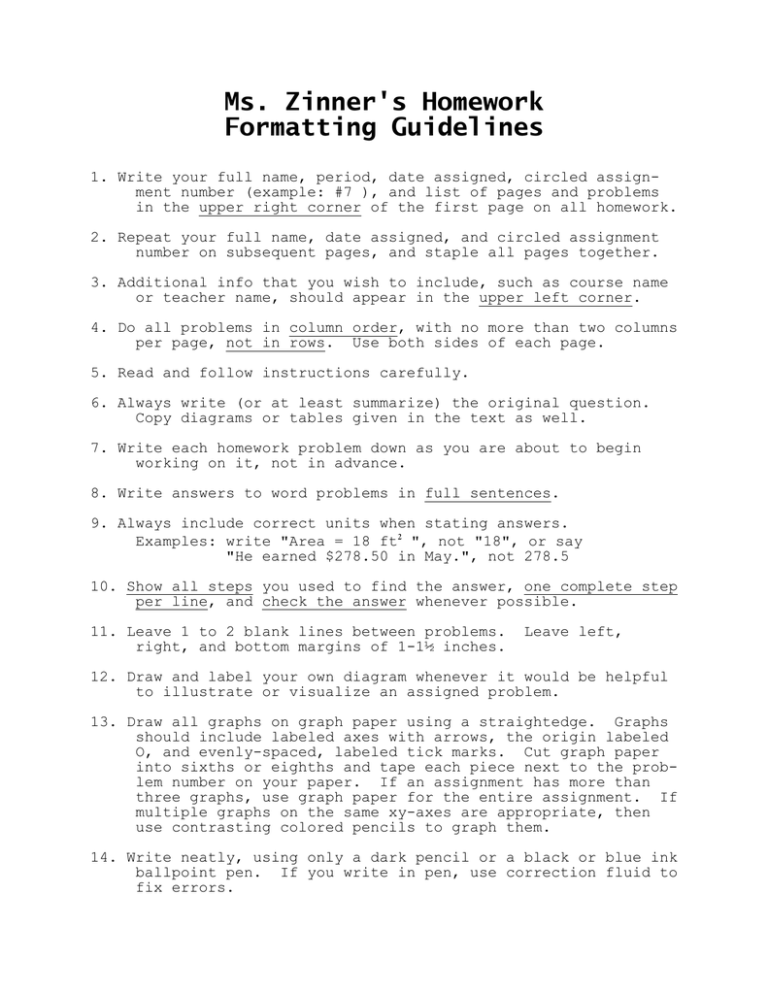
Ms. Zinner's Homework Formatting Guidelines 1. Write your full name, period, date assigned, circled assignment number (example: #7 ), and list of pages and problems in the upper right corner of the first page on all homework. 2. Repeat your full name, date assigned, and circled assignment number on subsequent pages, and staple all pages together. 3. Additional info that you wish to include, such as course name or teacher name, should appear in the upper left corner. 4. Do all problems in column order, with no more than two columns per page, not in rows. Use both sides of each page. 5. Read and follow instructions carefully. 6. Always write (or at least summarize) the original question. Copy diagrams or tables given in the text as well. 7. Write each homework problem down as you are about to begin working on it, not in advance. 8. Write answers to word problems in full sentences. 9. Always include correct units when stating answers. Examples: write "Area = 18 ft2 ", not "18", or say "He earned $278.50 in May.", not 278.5 10. Show all steps you used to find the answer, one complete step per line, and check the answer whenever possible. 11. Leave 1 to 2 blank lines between problems. right, and bottom margins of 1-1½ inches. Leave left, 12. Draw and label your own diagram whenever it would be helpful to illustrate or visualize an assigned problem. 13. Draw all graphs on graph paper using a straightedge. Graphs should include labeled axes with arrows, the origin labeled O, and evenly-spaced, labeled tick marks. Cut graph paper into sixths or eighths and tape each piece next to the problem number on your paper. If an assignment has more than three graphs, use graph paper for the entire assignment. If multiple graphs on the same xy-axes are appropriate, then use contrasting colored pencils to graph them. 14. Write neatly, using only a dark pencil or a black or blue ink ballpoint pen. If you write in pen, use correction fluid to fix errors. 15. Neatly box or highlight all answers.
